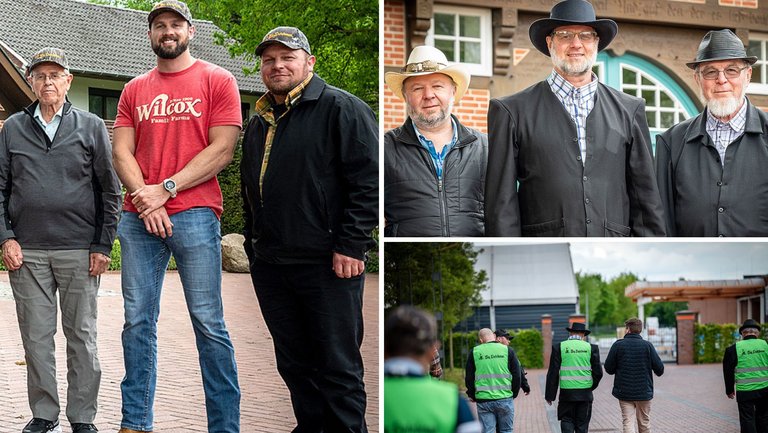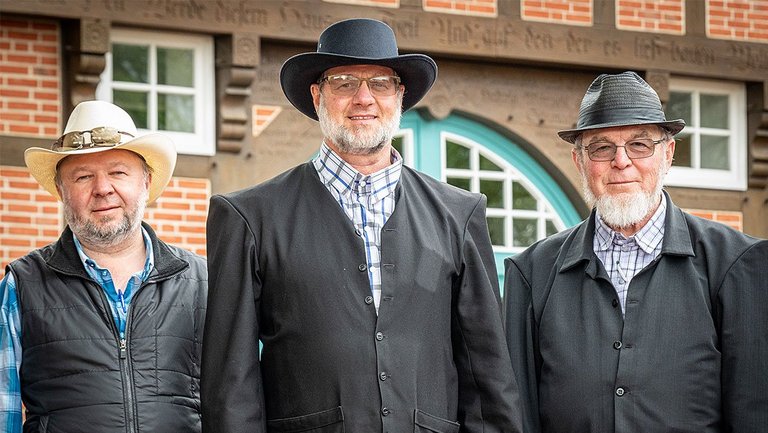Last week, Big Dutchman welcomed a special group of visitors to the headquarters in Calveslage: farmers from the US state of Montana. Big Dutchman employees who talked to the visitors were in for a surprise – some of them spoke fluent German! With an unfamiliar accent, but easy to understand. “We are Hutterites,” explains Mike Kleinsasser. “Our ancestors left Europe to escape religious persecution, which is why we still speak your language today.”
How agriculture forms connections: transatlantic exchange with farmers from the USA
Visitors from Montana: “We speak German at home”
The Hutterites are an Anabaptist group that live in colonies. They combine tradition and modernity in a unique way: deeply religious and organised as a community, they still use advanced technologies.
Mike, who is the Kingsbury Colony’s so-called Minister, and his colleagues Cal Waldner (Fairhaven Colony) and David Wipf (Miller Colony) are contract farmers for Wilcox Family Farms, a family business in its fourth and fifth generation that is based south of Seattle. Even though the Wilcox family are no Hutterites, they appreciate working with them.
Senior manager Barrie Wilcox says: “I took over the family business in 1960 and continue working to this day.” Wilcox Family Farms has been synonymous with innovative egg production for many years. Barrie Wilcox: “In 2012, for example, we introduced the first mobile poultry house in the US.” Today, Wilcox uses welfare-friendly management types exclusively. “Not one of our chickens is kept in a cage,” says Barrie Wilcox.
The Wilcox’ eggs are distributed in the entire Western United States. For example by Walmart, Whole Foods and AmazonFresh, the online retailer’s supermarket chain. And from California all the way up to Montana, where the Hutterites live.
In Montana, the Hutterites are leaders in agriculture. Their communities are among the most productive farms in the entire country. Around 98 % of all eggs produced in Montana come from Hutterite farms.
There are around 50 colonies in Montana, especially in the north and centre of the state. In each colony, 60 to 150 Hutterites work and live together. They often speak Hutterite German, a dialect with Austrian and Bavarian roots, similar to Tyrolean. Hutterites live a secluded life but are not isolated: they use modern technologies such as agricultural machinery.
All farmland, machinery, yield and livestock belong to the colony instead of an individual person. Decisions regarding cultivation, investments and sales are made together by the colony’s leaders (usually elders, ministers, secretaries).
- Pigs (for meat production, often processed in the colony)
- Cattle (dairy cows and fattening bulls)
- Poultry (mostly laying hens for egg production, often on a large scale)
- Feed is usually grown and processed directly on the farms.
- Community ownership: Everything belongs to the colony; there is very little personal ownership.
- Agriculture on a large scale: Hutterites are very productive farmers and sometimes also have small manufacturing companies (e.g. metalworking businesses, bakeries).
- Education: Children learn at schoolhouses at the colony, but lessons are usually government-approved.



